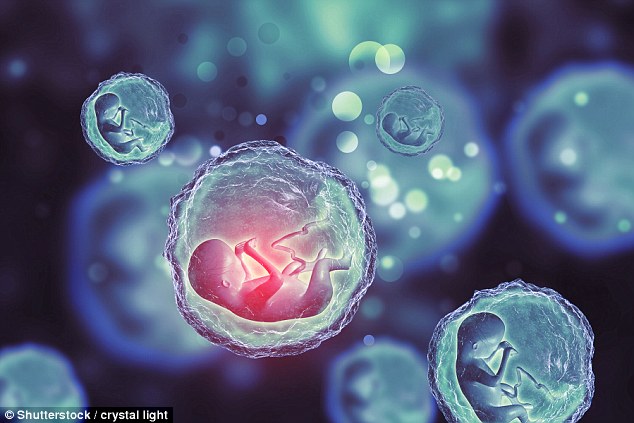For reasons that are currently unclear, female eggs are better at surviving the thawing process, according to Dr Renata Huttelova, from the IVF Cube in Prague.
She said: 'If we are talking about general population statistics, 51 per cent of births are male and 49 per cent are female.
'But with births following frozen embryos we have found the statistics swap over. This is just a slightly changed ratio, but there's certainly a slight difference weighted more towards girls.'
Infertility affects around 11 per cent of women and nine per cent of men of a reproductive age in the US. Around one in seven couples in the UK struggle to conceive.
'Girl embryos could be stronger'
Embryos often lose a few of their cells during the freezing and thawing process, with most being replaced.
Yet, male embryos tend to be more 'sensitive', Dr Huttelova explained.
She said: 'When I freeze embryos and then thaw them, male embryos [are] more sensitive.
'That's why we could get more girls after the freezing procedure. The girl embryos could be stronger.
'I would think that other embryologists would agree with the statistical differences, but the real question is why this happens.
'For me this is a small but noteworthy difference between the ratio of male to female after the thawing procedure. We need multiple [fertility] centre statistics to confirm this pattern.'
'Sperm magnets' boost women's pregnancy hopes by up to 10%
This comes after research released last March suggested that using sperm magnets attracts old, deformed semen that would unlikely survive to the stage of egg fertilisation.
Women can then exclusively be given this 'healthy' sperm, which boosts their chances of conceiving.
Since being used in the IVF Cube, the magnets, known as magnetic-activated cell sorting (MACS) have already helped two women become pregnant, while eight are awaiting the results of their treatment.
Dr Hana Visnova, medical director at the clinic, told MailOnline: 'I am confident that it can deliver between a five and 10 per cent improved chance of bringing about a successful pregnancy.'
Previous research suggests around 20 per cent of sperm taken from semen samples from infertile men are aged or deformed.
Studies also imply MACS eliminates between 15 and 20 per cent of sperm with broken DNA, while improving the overall amount of healthy swimmers by 10-to-15 per cent.
The Daily Mail
More about: fertility















































